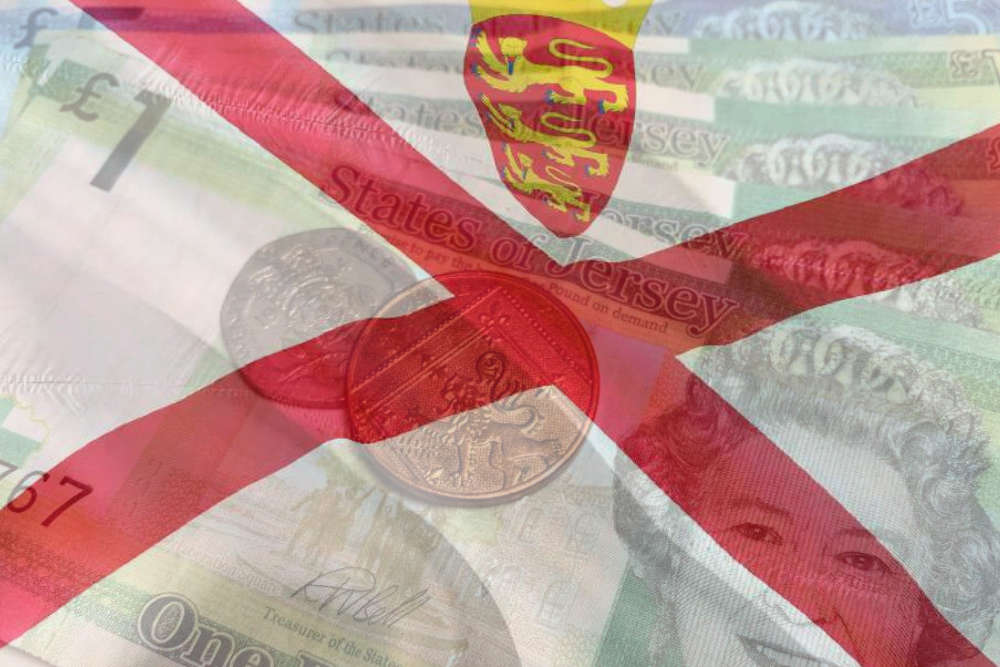
Jersey's ageing population is spurring the government to brainstorm ideas to curb the economic doubt the island faces within the next 15 years.
Our small island community boasts an economy worth more than £5.7 billion annually, putting us in the top 20 globally for the standard of living and GDP.
However, by 2040, there will only be 1.4 working people for every non-working person, falling from 1.9 working people today.
This is due to the senior workforce, which is the largest proportion of the population and working population, retiring within the next 10 to 15 years.
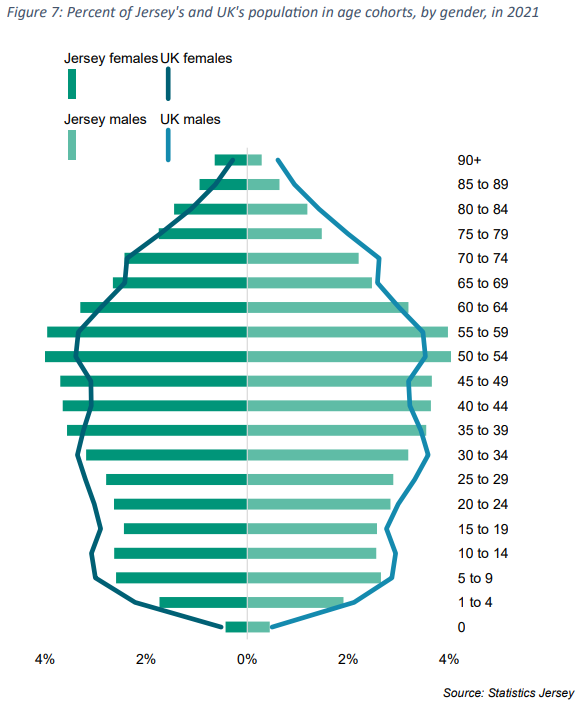
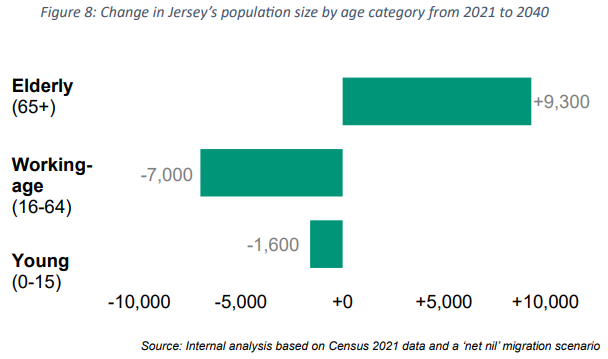
Those proportionally fewer workers will have to support the rest of Jersey's retired and unemployed population.
This means less tax revenue, more strain on health and social care, and fewer people actively working.
Meeting the demands of the island would require a population of 150,000, a 36% increase on the current number of residents.
This would be unsustainable for an island of our size, despite the current housing, education and healthcare strains.
The newly-titled Minister for Sustainable Economic Development, Deputy Kirsten Morel, says the 'Future Economy Programme' is vital to creating a reliable economy.
"All of this requires a change in culture which will take time and focus. So, while [this] publication is a significant step, it is only one step.
"There will be many more in the coming months and years, but all of them will add up to an increasingly prosperous and sustainable island."
With population increases deemed not an option, the government is looking elsewhere to solve the looming issues.
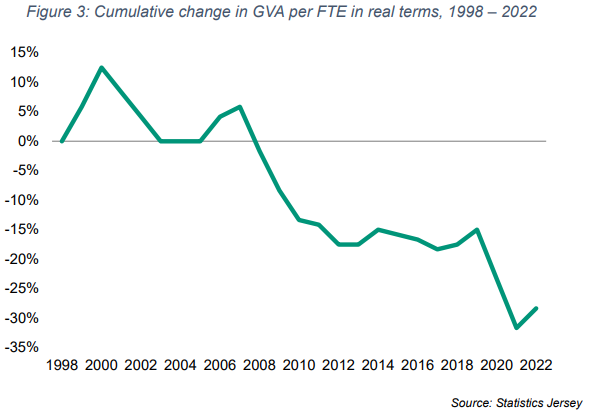
Productivity in Jersey has fallen by 30% over the last 20 years, regardless of the slight increase in 2022.
The government wants to create a consistently high-performing small-island economy to avoid future problems.
It proposes doing this by:
- Creating and attracting skilled workers,
- Keeping a sustainable population,
- Introducing a labour market which values all workers,
- And developing lifelong learning.
It says taking this route means the population can stay at a healthy level, but will still be able to support the ageing population.
"By achieving this vision, we will not only develop an economy that supports the island’s growing healthcare costs but will also create an island that is increasingly attractive to people, most importantly, ensuring that Jersey remains attractive to its young people so they continue to choose to live and work here."
This would be accompanied by environmental sustainability and technological advances.
This is just the beginning of what could be such an exciting project for Jersey. People talk about the need for economic diversification - well, here you go. Clean, low carbon energy for the long term at a predictable price & a significant export opportunity. https://t.co/uknhLe5uqQ
— Jonathan Renouf (@JonathanRenouf) October 18, 2023
The future vision suggests affordable housing and better land use will also support the island's economic endurance, making Jersey an attractive place to live.
In terms of technology, adopting new advancements and encouraging investment will 'help create an innovative economy' in the long-term.
Another idea is to make Jersey a test bed for new concepts, hopefully boosting entrepreneurship and creating new sectors to help with growth.
The government predicts this plan will support the economy past 2040, leaving options open for future generations.
Deputy Morel says by being more innovative, having a better understanding of risk, and becoming more creative, he believes Jersey can continue to be one of the world’s most prosperous economies.
"One of the key components of the Strategy is the need to reignite Jersey’s entrepreneurial spirit.
This is a call that needs to be answered by everyone.
Private businesses and individuals may already have it, but it needs to spread to us all, including to arms-length bodies and the public sector."


 High levels of E.coli found at Jersey's Grève de Lecq
High levels of E.coli found at Jersey's Grève de Lecq
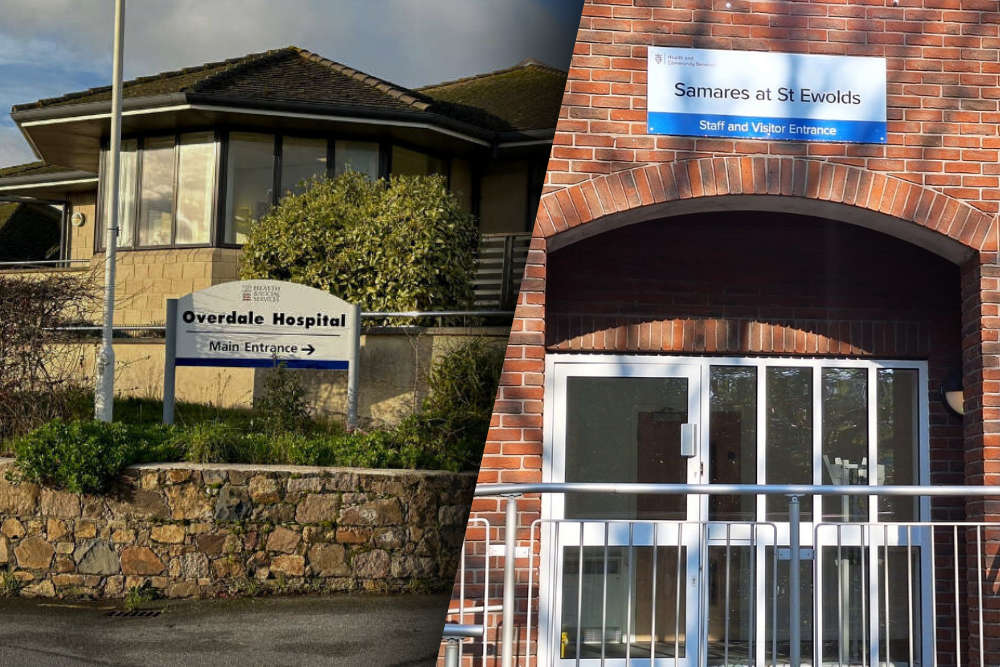 Patient rehabilitation moves to St Ewold's
Patient rehabilitation moves to St Ewold's
 Government updates its plan for improving the lives of children
Government updates its plan for improving the lives of children
 Jersey and Guernsey invite ferry companies to bid to operate future services
Jersey and Guernsey invite ferry companies to bid to operate future services
 Jersey Police appeal for missing man
Jersey Police appeal for missing man
 LOOK INSIDE: Jersey Opera House works expected to finish on time and on budget
LOOK INSIDE: Jersey Opera House works expected to finish on time and on budget
 Park and Ride trial from St Brelade to town
Park and Ride trial from St Brelade to town
 La Motte Street assault victim transferred to Southampton Hospital
La Motte Street assault victim transferred to Southampton Hospital
